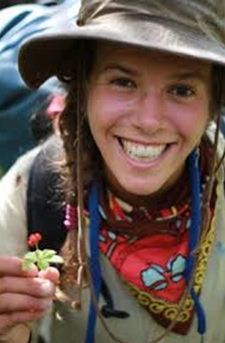|
|

|
  
Features
Update 2019/10/10
Rivers
This story is brought to you in part by

MCGILL PHD CANDIDATE STUDIES HOW RIVERS CONTRIBUTE TO OUR WELL-BEING
By Suzanne Forcese
Aquatic Ecologist, PhD Candidate, National Geographic Explorer, and Science Communicator, Dalal Hanna, is passionate about working toward solutions to the environmental challenges of a more equitable and sustainable future. Currently she is completing her research at McGill where she hopes to use her findings to inform freshwater conservation policy.
WaterToday had the distinct pleasure of speaking at length with Dalal Hanna who had just returned from work in the field on the beautiful Kitchi Sipi River. “I was invited to join a project in partnership with the Matawa Education and Care Centre of Thunder Bay, for youth from the First Nation Community of Matawa,” Hanna told WT. Hanna and teacher, Joseph Miller, escorted youth on a 2 week canoe trip, accompanied by a local knowledge keeper, to bridge the gap between western science and traditional knowledge. “It was a beautiful idea and I want to stay involved,” Hanna said of the co-authoring of her work with the students who will receive a grade 11 science credit for their part in the collaboration.
|
 |
Hanna is realizing her dream of connecting students with science in the wild. Recalling her own journey, Hanna remembers the glorious summer days of her youth while camping, canoeing and learning from nature. There was always a disconnect however when she returned to the classroom in the fall.
Science was not alive for her.
Although it was interesting, science had no real meaning for her until she had the good fortune in university to participate in a seven day tropical ecological field course in Costa Rica. The assignment was to think of a research question, then go into the forest and find the data that might provide an answer.
|
For the first time, the true meaning of science occurred to her. “Science is about asking questions that you think are important and using your observations and experiments to answer them.” That aha moment dictated the route her life was about to take as she decided to pursue a career in science and science communication. For her Masters she was interested in developing consistent links between mercury in biota and the effects on wildlife and humans. She has published research on mercury contamination in African fish.
Her published research also includes the effects of anthropogenic noise on bird song. The research involved recording the song of red-winged blackbirds that were next to a high traffic area and comparing it to the birds that were away from roads. The results showed that those birds in urban areas altered their song to a shorter frequency range which gave rise to the hypothesis that a narrower range allowed the sound to travel farther.
It was this discovery of environment impacting wildlife that led Hanna to her current work on ecosystem services.
“Ecosystem services,” as Hanna defines it “is the diverse ways Nature contributes to our well-being. Depending on how an ecosystem is managed it will provide very different services.” Ecosystems around the world play a key role in supporting people’s livelihoods and traditions by providing them with countless benefits, including drinking water, flood prevention and recreational areas. Hanna states that demand for freshwater ecosystems has increased rapidly, but at the same time they are increasingly threatened by development. “It is critical that we develop management strategies to ensure the sustainable and equitable provision of freshwater ecosystem services.”
Hanna’s research looked at 28 different streams in Quebec surrounded by different types of land use which included: streams surrounded by forestry; streams surrounded by forestry where lumber has been extracted; agricultural land; and national parks. She also quantified the ecosystem services of carbon storage, wild food, water quality, recreational trails, and habitat quality biodiversity.
“The results indicated that streams surrounded by national parks do a better job of supporting ecosystems and biodiversity than those surrounded by forestry and agriculture.”
“Research shows that when we don’t protect land, in the long run, we change it to develop it. Streams surrounded by unprotected forests (which currently do a better job at securing the provision of clean water, carbon storage, habitat quality and tree diversity) are always at risk of losing this ability if the land is developed.”
By paying attention to the diverse ecosystem services that streams rely on and support, we can make management decisions that improve their sustainability and multi-functionality. “This is especially true in Canada where we have such vast freshwater networks.”
Hanna hopes that her research will influence policy by first engaging a broader audience with her findings. “Science helps us make better decisions on where and how to protect our freshwater.”
Sharing science with kids is another one of Dalal’s great passions. She developed the podcast ScienceFaction. “I have a long history in radio at the University of Ottawa. When I came to McGill, I merged my passion in radio with my passion for science. We created 8 podcasts about unbelievable science discoveries.”
As part of her collaboration with national Geographic she has also been involved in the Explorer Classroom series for the past three years. “In my first year I worked with a kindergarten class that published a book on water. Last year a grade 11 class assessed their local watershed.”
Her crowning glory was inspired after she paddled 7000 km across Canada to raise funds and awareness for watershed conservation. It was that experience that gave rise to the not-for-profit (soon to be charity) Riparia which she co-founded with Andrea Jane Reid (watertoday.ca/ts-fn-canadian-biologist-fish-research-strengthens-indigenous-heritage-bond.asp) and Mikayla Wujec. “The best way to inspire young people to care about freshwater systems is to spend time on the water.” Riparia gives young people an opportunity that they might not otherwise have. “It’s the perfect vehicle to combine science, education and outdoor activities.”
“The fact is that when people have a better understanding of science, they make informed decisions.” Dalal Hanna’s vision is that her expanded reach will remove the barriers to an equitable and sustainable future.
suzanne.f@watertoday.ca
|
|
|
Have a question? Give us a call 613-501-0175
All rights reserved 2026 - WATERTODAY - This material may not be reproduced in whole or in part and may not be distributed,
publicly performed, proxy cached or otherwise used, except with express permission.
|
| |